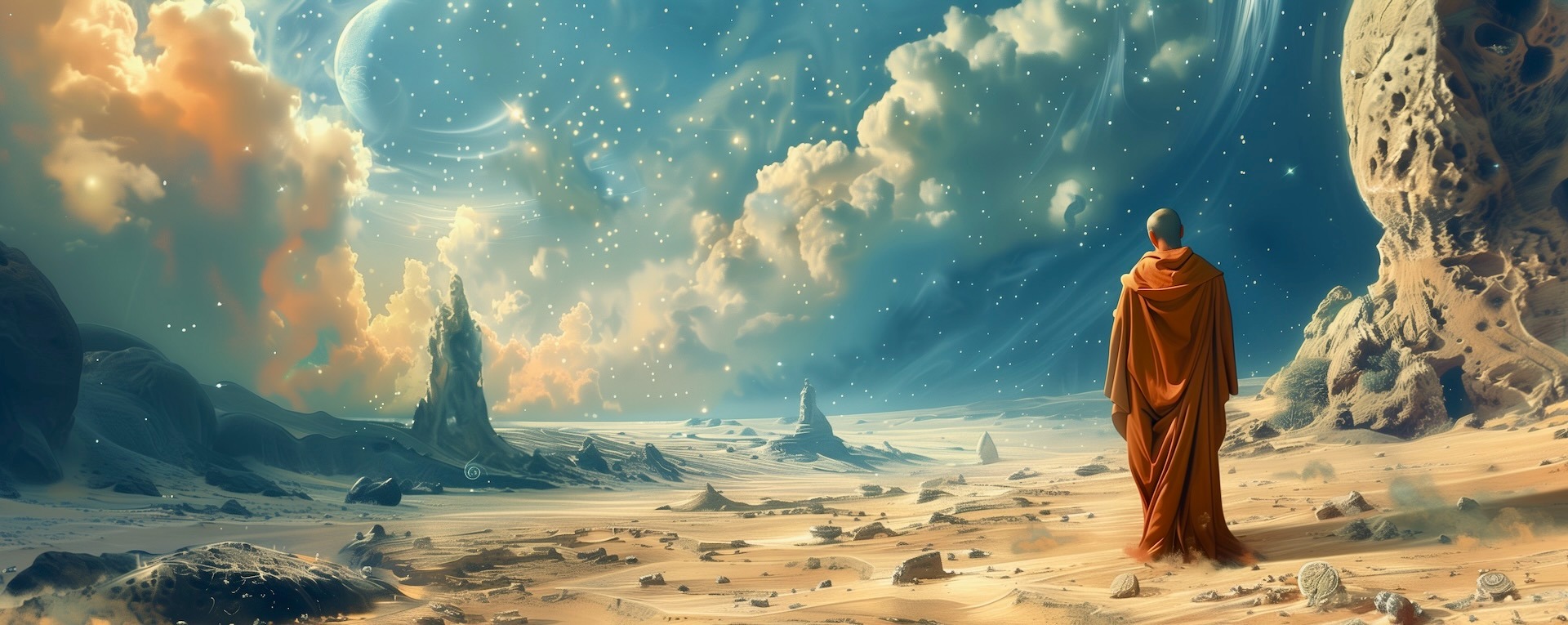
The Quest for Meaning
Are We Clutching at Straws and Grasping Clouds?
We are all seekers of meaning. From the dawn of humanity, as we huddled around fires and painted stories on cave walls, we’ve been trying to make sense of our existence. It’s a tale as old as time. The mystery of life, the meaning behind it, why we’re here. The search for that elusive truth has been the cornerstone of human thought for as long as we’ve had the ability to think.
And so, when an answer is provided, neatly packaged and handed down through generations, it’s easy to see why so many accept it. We’re social creatures by nature, and we often take comfort in numbers. We think, “If so many others believe it, it must be true.” But here’s the uncomfortable truth: Just because an idea is popular, it doesn’t make it right.
Let’s talk about religion. It’s often referred to as the greatest story ever told, and I suppose that’s true in a sense. It’s sold more copies than Harry Potter and has certainly captured the imaginations of billions over millennia. It is, without doubt, a powerful construct—one that has shaped societies, inspired art, motivated acts of love and acts of cruelty alike.
But does popularity imply truth? No. All it implies is that the story resonates with something deep within us—our longing for certainty, for answers, for comfort. Those who first wrote down the doctrines of religion were perhaps no different than us, desperately seeking meaning in a world that often feels devoid of it. They experienced things, imagined things, or perhaps genuinely felt something divine, but their words were their interpretations—fallible, human, and limited by the knowledge of their time.
And if they believed they were messengers from God, how would they have known if they were? How would anyone? If I stood here today and told you that I was a messenger from a higher power, you’d dismiss me as a lunatic. And rightly so. But what if I lived two thousand years ago, in a world where the sky’s thunder was the voice of a god and sickness was the work of demons?
Humanity has always sought answers, and when we couldn’t find them, we created them. From Stone Age tribes worshipping the sun and moon to the sophisticated theological systems we see today, the framework has evolved, but the search remains the same. We’ve just gotten better at dressing it up in more elaborate stories.
But here’s the thing—critical thinkers are not so easily swayed. They don’t follow like sheep, marching to the rhythm of tradition. They ask questions, they probe, they doubt. And when they discover that the answers given by established systems don’t hold up to scrutiny, they keep searching. Or perhaps, they learn to embrace the mystery itself.
And maybe that’s the point. Maybe the truth we’re all searching for doesn’t even exist. Or perhaps it’s so far beyond our comprehension that trying to capture it is like trying to grasp clouds. Why does there have to be a meaning to life? Why must there be some grand, cosmic purpose just to satisfy our own need for justification?
What if the meaning of life is just… to be? To experience the beauty and chaos of existence without demanding it makes perfect sense? We keep looking for answers, but what if the greatest wisdom is acknowledging that there may not be any?
Religion, science, philosophy—they are all attempts to bridge the gap between what we know and what we feel. But even science, with all its marvellous discoveries and undeniable truths, ultimately hits a wall. Because no matter how much we learn, there will always be something more to discover. We will never have all the answers.
So, maybe the only meaning to life is to simply live. To experience, to feel, to grow, to connect, to create. To be aware of the vastness of everything and be content with our own small part in it. Maybe the truth is not something to be found but something to be experienced.
I’m not here to tell you what to believe. I’m not here to present some ultimate truth. I’m here to suggest that perhaps there is freedom in accepting the not-knowing. That maybe, just maybe, our relentless search for meaning is, in itself, a beautiful act of futility.
Perhaps the point is to simply be.

Follow my Channel on YouTube
© 2025 Peter Pickering. All Rights Reserved, All Wrongs Reversed.


